Having Cake and Eating it With Hume and Spinoza
Interview by Richard Marshall.

'One should definitely have one’s cake and eat it too whenever possible! The solution to a philosophical problem often needs to concede something to each side of the dispute precisely because each has seen something important.'
'Hume seeks to demystify reason by treating it not as a divine spark of insight about what is right and true, or as something that might pervade and order the universe, but simply as a psychological faculty for making inferences. Only once we’ve narrowed it down in this way, he thinks, can we investigate its nature empirically with any hope of success.'
'Feminist historians of philosophy have brought welcome attention and analysis to Hume’s views about gender, which are fascinating, complex, and, from a contemporary standpoint, unquestionably a mixed performance. With respect to reason in particular, feminist critiques of the historical concept of reason as both value-laden and gendered help, I think, to demonstrate the philosophical value of—and at the same time can themselves benefit from—Hume’s more narrowly psychological and naturalistic conception. For example, as Annette Baier pointed out thirty years ago, Hume offers a long list of reasons why some people surpass others in reasoning, and they all concern either contingent external circumstances or other specific features of the mind that can readily be argued not to be gender-specific.'
Don J Garrettworks primarily in early modern philosophy, with special interests in metaphysics, epistemology, philosophy of mind, and ethics. He has served as co-editor of Hume Studies and as North American editor of Archiv fur Geschichte der Philosophie. He was elected to the American Academy of Arts and Sciences in 2009 and was Carnegie Centenary Professor at the University of Edinburgh in 2011. Here he discusses Hume's notion of 'reason', reason's normativity, doubts, contradictions and imperfections, lessons for contemporary epistemologists, what methodological feminism brings to Humean reason, Hume and causation, whether Hume would have been a Kantian if he'd done more maths, the bundle theory and personal identity. Then he discusses Spinoza and the possibility of error, what Spinoza might have said to the German idealists, whether Spinoza is a Hobbesian, and what makes Spinoza and Hume the greatest naturalist philosophers of the seventeenth and eighteenth century.
3:AM: What made you become a philosopher?
Don J Garrett: Some people who become philosophers feel an early and immediate attraction to philosophy, while others come around to it only later through the study of something else. I am definitely in the first category. My earliest philosophical questions were far from original—how can I know that there is an external world, why be moral, etc.—but I didn’t realize that anyone else thought about them as well. Certainly they never came up in school. When I found out, around age sixteen, that some other people did think about them quite a lot, I started checking out books of philosophy from the public library. One was The Existence of God by Wallace Matson. It covered the main arguments pro and con, but I was dumbfounded by the ontological argument, which seemed like the most amazing logical magic trick. I was sure it wasn’t a real proof, but it was so tantalizing to try to say in a really satisfying way why it wasn’t. Another was The Art of Philosophizing, a short collection of three essays and lectures by Bertrand Russell intended for a general audience. In an essay called “The Art of Drawing Inferences,” he devoted several pages to a problem that had, he stated, been “something of a scandal ever since the time of Hume”: the problem of justifying induction. He explained Reichenbach’s pragmatic solution, which he judged to be unsatisfactory, and then concluded with these words, “I hope, and I more or less believe, that in time a better answer will be found. If you, reader, become a logician, perhaps it may be you who will find this better answer.” I thought, “He’s talking to me!” I immediately started telling all my high school friends about the ontological argument and the problem of induction. Quickly I discovered that not everyone found them as fascinating as I did.
At that point, it still hadn’t occurred to me that I could have a career in academia. So I started college at the University of Utah majoring in political science and planning to go to law school. One day, my professor for a freshman core course asked me about my plans. She was a classicist herself, but when I told her, she said, “No, you don’t want to do that. It’s obvious that you want to major in philosophy and become a philosophy professor.” I realized that she was right, at least about the major, which I changed soon afterwards. The philosophy department at Utah proved to be full of great teachers and inspiring role models. My dissertation advisor at Yale, Ruth Barcan Marcus, was a major influence, as were Robert Fogelin, Michael Williams, and Harry Frankfurt; soon after I graduated, Ed Curley became a generous mentor as well. I am very grateful to all of them.
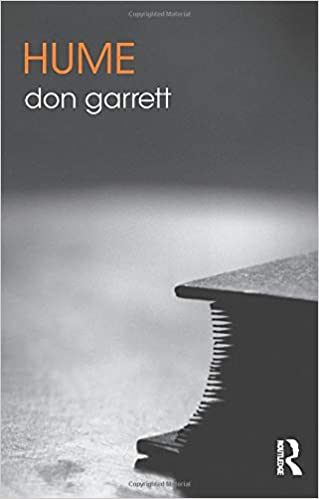
3:AM: Hume’s one of the early modern western philosophers you’re an expert in. Let’s start with his use of what he calls ‘reason.’ You make the point that he relies on it but at the same time concludes that it’s a pretty limited thing. There’s a sort of paradox hanging around this where on the one hand it has a normative role as a ‘tribunal’ and yet on the other it is liable to irremovable doubt, contradictions, imperfections and objections. So how should we understand the normative role of reason in Hume? Can you first say something about what he takes ‘reason’ to be and what’s the scope of its mandate?
DG: Hume seeks to demystify reason by treating it not as a divine spark of insight about what is right and true, or as something that might pervade and order the universe, but simply as a psychological faculty for making inferences. Only once we’ve narrowed it down in this way, he thinks, can we investigate its nature empirically with any hope of success. Hume is so careful about this that he doesn’t even use the term ‘reason’ for the interaction between a desire for an end and a belief about the means to it that produces a desire or action for the means—what others would now call “instrumental reason.” When reason is conceived in this focused way, we can see that it does not, or does not by itself, play a number of roles that—given the enormous prestige of the term ‘reason’—we might have hoped that it would, and that other interesting features of the mind must therefore pick up the slack.
But while the scope of Humean reason is confined to inference, it is still the driving power that extends the scope of belief beyond the immediate deliverances of the senses and memory. Furthermore, he thinks, reason as the inferential faculty imbues our ideas with the feeling of conviction or “sentiment of belief” (which he more commonly calls “liveliness” or “vivacity”) that constitutes the original pre-conceptual source for our developed concept of probability, in much the same way that the sentiment of moral approbation constitutes for him the original pre-conceptual source of our developed concept of moral virtue.
3:AM: So what kind of normativity does it have?
DG: Normativity is always a natural social phenomenon for Hume; we understand how a concept—an “abstract idea” in his terminology—has normative status by explaining the distinctive kind of role that applications of the concept play in human life, including especially the ways in which they express shared appreciation or deprecation of a quality (or relation) and engage the passions (notably pride or humility, and love or hatred) that guide our interactions with one another. Human beings appreciate both the probable truth of beliefs (probable relative to their experience, that is) and the virtue of character traits, and they feel pride and love in response to both. While probable truth and virtue are two different values, the concept of the former helps to structure the domain of epistemic value for Hume, as I read him, in much the same way that the concept of the latter structures the domain of moral value. Accordingly, I call the capacity for felt conviction Hume’s “sense of probability,” on analogy with what he calls “the moral sense.” In a similar way, what he calls “the sense of beauty” gives rise to a normative concept of beauty that structures the domain of aesthetic value.
It is important to emphasize that, for each “sense,” immediate individual felt responses often diverge from one another. Accordingly, Hume thinks, we achieve a stable concept (whether of probability, of virtue, or of beauty) with which to make judgments chiefly by converging, through an entirely natural social process, on a “standard of judgment” (as he sometimes calls it) for that concept. In each case, this standard consists of an accepted standard perspective from which to respond together with an accepted standard set of endowments with which to respond. In the case of probability, the perspective involves extensive experience (with the exact amount relative to context) and the operation of some (“philosophical”) but not other (“unphilosophical”) mental operations. In each case, too, the application of the standard is assisted by a set of “rules” for judging specific to that standard. It is because the concept of probable truth is an epistemically normative one and reason is our main source of input or information about probability—crucially including the probability of a belief’s being true—that reason functions as an epistemically normative “tribunal” for beliefs.
That’s how I read him, at least, and I think it is the best way. It is hard to see how Hume could have or sustain confidence in merely prudential endorsements of our beliefs if he thought that the factual beliefs on which those endorsements would have to depend were not at least probably true relative to present experience. It is also hard to see how he could claim that he was “explain[ing] the principles of human nature” in such a way as to “propose a compleat system of the sciences, built on a foundation almost entirely new, and the only one upon which they can stand with any security” if he did not think that his contributions were at least probably true.
3:AM: And are the doubts and contradictions and imperfections really irremovable or does he think they can be overcome?
DG: In the course of investigating his cognitive faculties by means of those very faculties, Hume comes to discover a surprising set of probable arguments for (in effect) the disturbing second-order conclusion that the beliefs delivered by reason are not probably true. Because these arguments result from empirical discoveries about the actual operations of our faculties, they constitute what he calls “consequent scepticism,” in contrast with the “antecedent scepticism” that simply begins by challenging the legitimacy of our beliefs. These second-order “consequent” arguments do not result from mistakes, and they are in no way fallacious, in his view; so in that sense, he thinks that they are irremovable. At the same time, however, they are opposed by first-order information from our sense of probability that the matters of fact we believe in are probable and hence that our beliefs about them are probably true. Crucially, there are, for Hume, no a priori principles that determine what the outcome of such a conflict must be. Instead, we must simply bring our overall epistemic sensibility reflectively to bear, just as we would bring our overall moral sensibility reflectively to bear in a case of conflicting moral sentiments, or our overall aesthetic sensibility reflectively to bear in a case of conflicting aesthetic sentiments.
The final outcome of this disturbing confrontation with skeptical arguments, Hume reports, is similar to what we experience in many other cases of conflicting feelings—namely, a diminution but not an annihilation of the force of the stronger by the weaker. Thus, in the present case, the skeptical arguments do not entirely destroy the probability of truth of the beliefs delivered by reason—as felt in accordance with the standard—but they do genuinely diminish it. This is the first aspect of what Hume calls “mitigated scepticism”: it is that “degree of doubt, and caution, and modesty, which, in all kinds of scrutiny and decision, ought for ever to accompany a just reasoner.”
Even though Hume endorses this kind of merely mitigated skepticism as part of his normative epistemological view, he also emphasizes that temporary neglect of the skeptical arguments by focusing on convincing first-order considerations will sometimes raise one’s felt conviction above the normatively recommended level. By the same token, he emphasizes that intense focus on these skeptical arguments to the neglect of the first-order considerations will sometimes temporarily decrease one’s felt conviction below the normatively recommended level. This is comparable to the way in which focusing on one set of considerations or another can continue to alter one’s immediate felt moral or aesthetic responses even after one has reached a considered judgment. In this purely psychological respect, even rather more severe skeptical doubts are not permanently removable, even though they are also not continuously sustainable.
3:AM: Are there lessons for contemporary epistemologists in this and what does methodological feminism bring to the study of Hume on reason?
DG: Nearly everyone appreciates that there are many important lessons for contemporary ethicists in Kant’s moral framework, but I would argue that there are also many important lessons for contemporary epistemologists in Hume’s (positive, not merely negative) epistemological framework. This is a topic I plan to explore more directly and in greater depth in the near future, but the lessons extend to such topics as the nature of belief and the sense in which it “aims at truth”; the “response-dependent” character of one basic concept of probability and its resulting capacity to support a kind of “dogmatism” (in a sense of that term derived from Jim Pryor’s treatment of sense perception) about probability; the prospects for probable truth as a fundamental epistemic value, perhaps taking priority over justification or knowledge; and even a solution to the “scandalous” problem of induction as formulated by Russell in his long-ago challenge to readers.
Feminist historians of philosophy have brought welcome attention and analysis to Hume’s views about gender, which are fascinating, complex, and, from a contemporary standpoint, unquestionably a mixed performance. With respect to reason in particular, feminist critiques of the historical concept of reason as both value-laden and gendered help, I think, to demonstrate the philosophical value of—and at the same time can themselves benefit from—Hume’s more narrowly psychological and naturalistic conception. For example, as Annette Baier pointed out thirty years ago, Hume offers a long list of reasons why some people surpass others in reasoning, and they all concern either contingent external circumstances or other specific features of the mind that can readily be argued not to be gender-specific. Similarly, feminist critiques have shown that the historical concept of passion, commonly set in direct opposition to reason, is both gendered and value-laden in an unduly negative way. These critiques demonstrate the value of—and at the same time can benefit from—Hume’s careful naturalistic account of the essential positive roles of passion in both cognitive and moral success.
3:AM: Hume’s discussion about causal relations is well known and important but you suggest that there’s no settled interpretation of his position coming out of his arguments. At times Hume seems to deny that there are real causal relations in nature but at other times he seems to affirm them – even if they are epistemically inaccessible. You argue that the mistake is to identify a projectionist, reductionist, realist position in Hume that finally collapses into one of them. So first, can you sketch these three positions as found in Hume.
DG: Psychologically speaking, there is a projectivist aspect to Hume’s view, because he holds that an internal impression of necessary connection is typically projected onto causes and effects in the ordinary course of our recognizing them. Semantically speaking, there is a realist aspect, because he holds that propositions ascribing causal relations express genuine truths that would hold whether there were human observers or not and are not synonymous with (equivalent in meaning to) propositions about regularities. Epistemologically speaking, there is a reductionist aspect because he holds that, in virtue of the origin and nature of the concept of causation, constant conjunction of a certain kind is nevertheless guaranteed to be both necessary and sufficient for the holding of a causal relation. As I interpret him, Hume’s theory of concepts allows him to regard all of these various claims as being true together. The human mind’s capacity to feel the impression of necessary connection in making inferences that convey “liveliness” constitutes a kind of “causal sense” analogous in some ways to the moral sense and sense of probability that I mentioned previously.
3:AM: And how do you keep each of them from being the final holding place of Hume’s theorising about causation? Aren’t you having your cake and eating it by denying that any of them is the actual Humean position?
DG: One should definitely have one’s cake and eat it too whenever possible! The solution to a philosophical problem often needs to concede something to each side of the dispute precisely because each has seen something important. I think that Hume actually does have a quite settled view about causation, but, as indicated, it is a highly nuanced one that is difficult to classify with a single label, and he emphasizes different aspects of it in different contexts for different purposes. As Peter Millican has rightly emphasized, the doctrine that constant conjunction is necessary and sufficient for causation is crucial to the uses he makes of his theory—for example, in arguing that we already know enough to know that human actions are causally necessitated and in arguing that there can be mind-body interaction.
But this does not settle the more strictly metaphysical question of whether there is a further “necessitating something” that all cause and effect pairs have in common in addition to their constant conjunction and their resulting capacity to produce inference and association in human minds. As I understand Hume, he thinks that this more metaphysical question makes a vague kind of sense in an analogical way—via the use of what he (following Locke) calls “relative ideas”—but his response to the question is to regard it with what he calls “indolence and indifference.” This unwillingness to make any judgment about “remote” topics entirely outside the scope of human experience is, in turn, the second element—the first being the overall diminution of credence mentioned previously—in what he calls “mitigated scepticism.”
3:AM: Kant said that Hume would have taken the transcendental idealist route if he’d focused more on the nature of maths. You’ve speculated about this, so what do you think Hume would have made of Kant’s representation of his problem and his proposed solution?
DG: Kant claims in his Prolegomenathat Hume failed to notice that geometry provides synthetic a priori knowledge and that noticing it would have led Hume to transcendental idealism. He claimed this, however, only because he could not read English and so had not read Hume’s then-untranslated treatment of geometry in the Treatise. In fact, Hume does effectively recognize that geometry provides knowledge that is a priori (as grounded in relations of ideas) and yet is not analytic in Kant’s sense (because the predicate is not contained in the subject); but this does not lead him to posit the ideality of space.
More generally, Kant’s transcendental arguments do not fit neatly into Hume’s dichotomy of demonstrative and probable reasonings, and I doubt that Hume would have found any of Kant’s transcendental argument convincing—including, of course, Kant’s argument that all events must occur in accordance with uniform laws of nature. From Hume’s experimental perspective, we are never in so strong a position as Kant thinks to say, a priori, what cognition absolutely requires. That said, however, Hume does emphasize the inadequacy of our model of how bodies are spatially extended through the extension of their qualities, and in that way he is at least open to the actual ideality of space. In addition, I have argued that Hume’s implicit theory of mental representation entails that a world without at least many causal relations among the objects of thought would almost certainly be a world in which intentionality itself was impossible. I wouldn’t claim that he saw that entailment, however.
3:AM: You say that Hume on personal identity finds him working on the most important question he could have seen and the most important issue for us to see where he is grappling with the metaphysics of the ownership of perceptions by individual minds. Have I got that right? Can you flesh out the issue for Hume and say why it is so difficult?
DG: Hume’s famous “bundle theory” is that different mental states—“perceptions” in his terminology—belong to the same mind in virtue of their causal relations to one another. In proposing this theory, he rejects the view that perceptions inhere in an enduring substantial substratum or soul. He also holds that most perceptions have no spatial location relative to anything else (they are “no where”). However, constant conjunction is, on his view, necessary and sufficient for a causal relation, and so for the bundle theory to work, we must be able to narrow down potential cause-and-effect pairs to things that are in some way contiguous or in the same place. Passing over some detail and putting the matter as simply as possible, Hume supposed that causal bundling could explain the “location” of different perceptions in the same mind, obviating the need for spatial contiguity or inherence in the same shared substance, without initially recognizing that, on his account of the causal relation, perceptions would already have to have a common “location” in order to stand in the needed causal relations to one another.
In the Appendix to his Treatise, Hume vividly expresses his dissatisfaction with the account of personal identity that he had earlier proposed in the main body of the Treatise, but he notoriously does not succeed in explaining clearly exactly what problem he saw. As a result, the secondary literaturecontains over two dozen different theories about what was worrying him. In my view, the problem I have just outlined is the deepest and most serious problem with Hume’s theory, and it also corresponds better to what he does say in the Appendix about his dissatisfaction than does any other problem that he might plausibly have been worried about. He could resolve this problem only by changing his theory of causation, accepting a mental substratum, or—the best solution, but one that he does not consider in any sustained way—granting perceptions a spatial location by identifying them with brain states.
3:AM: What do you interpret Hume as saying about personal identity?
DG: Hume makes both a metaphysical claim and a psychological claim. The metaphysical claim is that the mind is in fact a complex bundle of different perceptions standing in causal relations to one another. A consequence of this is that, while the bundle may be made possible by a continuing but changing human brain, a person is not an immaterial soul or self underlying and in addition to the bundle itself. The psychological claim is that we ascribe unity (simplicity at a time and identity through time) to this complex bundle only because of the power of mental association operating on perceived relations of causation and resemblance. A consequence of this, in the context of Hume’s more general account of unity, is that personal identity is in a way response-dependent and also subject to vagueness and borderline cases. This latter consequence has further (and intentionally negative) consequences for personal immortality.
3:AM: Another of the early moderns you’ve written about is Spinoza: and one of the questions you raise about him is whether he’s in error about the possibility of error. So is he, and what’s at stake here?
DG: In the Ethics, Spinoza states that each human mind is both “the idea of” and “one and the same thing as” the human body that is its objectum. ‘Objectum’ is of course naturally translated as “object.” He also states that “a true idea agrees with its ideatum,” and ‘ideatum’ is usually also translated as “object.” But as Jonathan Bennett was perhaps the first to remark, if every idea is identical with its object, then it seems that it cannot fail to agree with it, and so every idea will be true. Yet Spinoza insists that one of his main purposes in writing is to help readers overcome error. As a result, it seems that Spinoza must be in error about the very possibility of error. So it is the coherence of his entire epistemology that is at stake.
To resolve this puzzle, we need to distinguish in Spinoza between a mind’s having an objectum and a mind’s (or other idea’s) agreeing with its ideatum. A human mind’s objectum is simply the body of which it constitutes an immediate but cognitively inadequate awareness, although this awareness has some cognitively adequate intellectual elements. This mind and this body are the very same thing in two different manners of existence (attributes), thought and extension respectively. Through this awareness of its body, Spinoza explains, the mind is also able to represent to itself the external causes of the states of that body (again inadequately, but with some adequate intellectual elements). For a mind or other idea to agree with its ideatum, in contrast, is for it to represent adequately everything that it is of or about, including represented entities that may be external to its objectum. No finite mind as a whole agrees entirely with its ideatum, but it will have some intellectual ideas that do agree with their ideata and are therefore true. It is the inadequacy of cognition that makes confusion, falsity, and error possible.
3:AM: Spinoza was followed by the great German Idealists and you tell us that they were all keen to say that either their new system is right or else Spinozism is. You construct a hypothetical dialogue between Spinoza and these idealists. Can you sketch for us the kinds of things Spinoza might have said in response to them?
DG: Leibniz, Kant, Fichte, Hegel, and Schelling each thought that they were in some sense providing the only genuine alternative to Spinozism, which they considered to be highly objectionable. I imagine Spinoza replying, “You are each right about the disjunction: either your philosophy is true or mine is. I note that your philosophies are not compatible with each either. I leave you to draw the inference.” Because their philosophies are different, his dialogues with each would be somewhat different as well. But a common theme would be that what they identify as the objectionable features of Spinozism are either not really features of Spinozism or not really objectionable. Examples of the former kind would include denying the reality of the natural world (which Hegel called “acosmism”) or failing to allow for self-consciousness. Examples of latter kind would include substance monism, necessitarianism, and the co-equal reality of extension and thought as manners of existence that each thing has.
3:AM: Is Spinoza a contractarian Hobbesian in regards to the foundations of the state?
DG: Spinoza agrees with Hobbes that each thing has as much right as it has power. For both, this is a naturalistic approach to right that makes a scientific political science possible. Furthermore, they agree that human beings are much better able to satisfy their striving to preserve themselves as part of a political state than as individuals in a state of nature, and that the existence of a political state requires a contract among individuals in which they convey their power and hence right to a sovereign. Hobbes regards this contract as, by its very nature, conveying almost all of the subjects’ rights, reserving chiefly a right of immediate self-defense. For his part, Spinoza does not recognize any purely conceptual limitations to the political contract at all, but instead emphasizes that human psychology places quite serious limits on the extent to which human beings do or can ever actually convey their power, with the result that the state must constantly take care to retain such power and right as it actually has. This is best done, on Spinoza’s view, by a democracy that allows freedom of thought and religion, whereas Hobbes recommended an absolute monarchy in which the sovereign exercises control of both. Each, of course, was responding to the conditions and recent political history of his own country. But whereas Hobbes denied that human life had any summum bonum (highest good), Spinoza located the summum bonum in understanding.
3:AM: Morality, virtue, God and religion are other huge themes treated by Hume and Spinoza in what I guess might be called a naturalistic way. Is that a useful way of characterising one of their important legacies, the idea that they inaugurated an approach to these subjects – and in fact to all philosophical thinking - that didn’t require commitment to supernatural entities and enabled taking a scientific methodology to these subjects?
DG: Yes. I understand naturalism in the broad sense as the attempt to explain things without appeal to supernatural, or universal entities; to non-law-governed events or influences such as miracles or libertarian free will; or to explanatorily basic normative or intentional qualities. By this standard, Spinoza and Hume are the greatest and most influential naturalists of the seventeenth and eighteenth centuries, respectively. It is this, I have come to realize, that keeps bringing me back to their work.
3:AM: And finally, for the readers here at 3:AM, are there five books you could recommend that will take readers further into your philosophical world?
DG: Even if they have read Spinoza’s Ethics and Hume’s A Treatise of Human Nature before, I recommend reading them both again. It may just be that I am slow on the uptake, but I find much new value in them every time I read them.

As companions to these books, however, I recommend Michael Della Rocca’s Spinoza
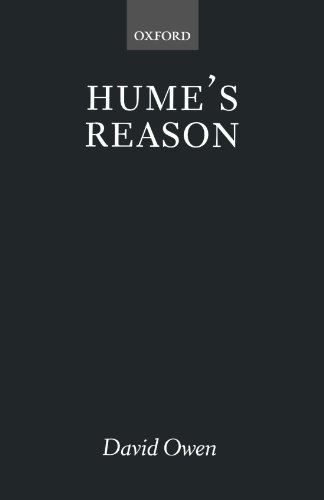
and David Owen’s Hume’s Reason respectively—both are accessible, incisive and provocative.
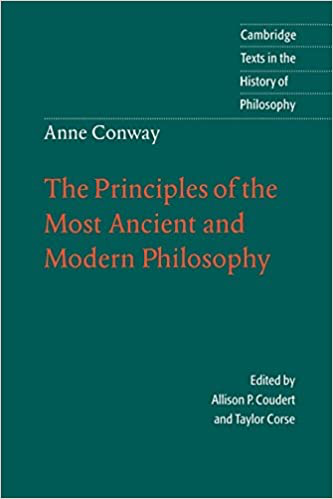
For a fascinating example of an original early modern work of philosophy that most of your readers have probably not read before, I recommend The Principles of the Most Ancient and Modern Philosophy Anne Conway.
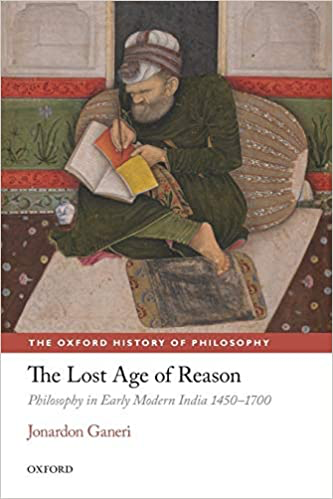
For an especially vivid demonstration that not all history of philosophy is the history of European philosophy, I recommend Jonardon Ganeri’s The Lost Age of Reason: Philosophy in Early Modern India 1450-1700. It is informative and philosophically engaging in many different ways.
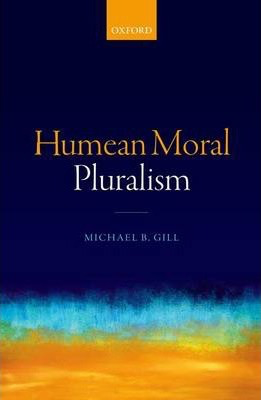
Finally, for an example of how the history of philosophy can motivate the development and defense of an important view in contemporary philosophy, I recommend Michael Gill’s Humean Pluralism. Historians of philosophy often say that the history of philosophy has a lot to offer contemporary theorizing, but Gill puts his money where his mouth is.
ABOUT THE INTERVIEWER
Richard Marshall is still biding his time.
Buy his book hereto keep him biding!